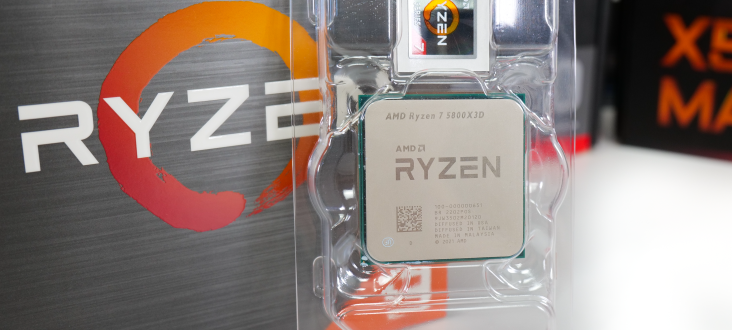Good afternoon all,
I recently purchased a 5800x3D to replace my old 2700x as Asrock released BIOS compatibility. I installed the 5800x3D with an EK basic 360 AIO and got everything up and running fine. During gaming or CPUZ stress test temps are hovering between 65 and 75c however, when running all core Cinebench R23 for 10 minute loop, my temps will hit almost 90c on the package and spike above 90 on CCD 0 (highest I saw was 91c). Frequency remains fairly high even at high temps around 4.2 gigahertz but the temps are causing concern. I have seen conflicting information about the subject where some people say 90c is higher than usual and some are saying even with 420mm AIO they will hit 90c on synthetic benchmarks. I have already reseated cpu, repasted the block and made sure contact from the block to the IHS was even but temps stay fairly consistent. I was worried I would need to RMA the chip, does anyone have experience with this chip that can weigh in?
Build:
Case: Lian Li PC 0-11 Dynamic --> 3 bottom intake 120mm fans, 3 side intake 120mm fans, radiator top mounted with 3 Vardar s fans acting as exhaust.
Mobo: Asrock x370 Killer Sli/Ac BIOS 7.40
Cooler: EKWB basic 360 AIO (full pump speed and fans at 100% at 80c)
GPU: MSI RTX 2080 Gaming X Trio
I recently purchased a 5800x3D to replace my old 2700x as Asrock released BIOS compatibility. I installed the 5800x3D with an EK basic 360 AIO and got everything up and running fine. During gaming or CPUZ stress test temps are hovering between 65 and 75c however, when running all core Cinebench R23 for 10 minute loop, my temps will hit almost 90c on the package and spike above 90 on CCD 0 (highest I saw was 91c). Frequency remains fairly high even at high temps around 4.2 gigahertz but the temps are causing concern. I have seen conflicting information about the subject where some people say 90c is higher than usual and some are saying even with 420mm AIO they will hit 90c on synthetic benchmarks. I have already reseated cpu, repasted the block and made sure contact from the block to the IHS was even but temps stay fairly consistent. I was worried I would need to RMA the chip, does anyone have experience with this chip that can weigh in?
Build:
Case: Lian Li PC 0-11 Dynamic --> 3 bottom intake 120mm fans, 3 side intake 120mm fans, radiator top mounted with 3 Vardar s fans acting as exhaust.
Mobo: Asrock x370 Killer Sli/Ac BIOS 7.40
Cooler: EKWB basic 360 AIO (full pump speed and fans at 100% at 80c)
GPU: MSI RTX 2080 Gaming X Trio



